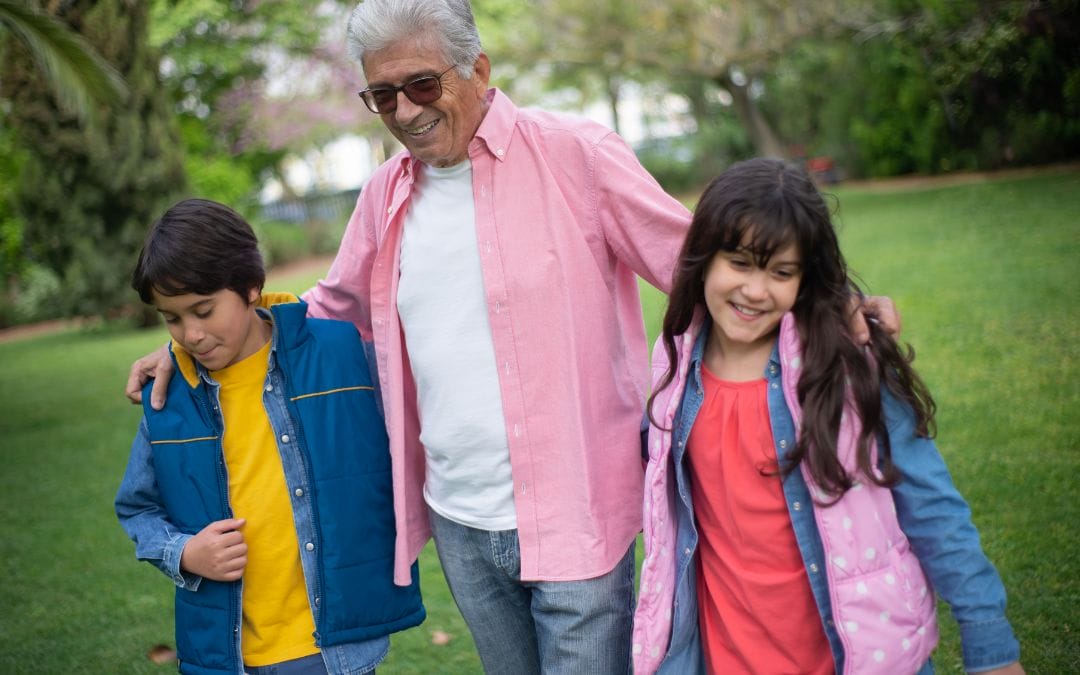As a parent, you are no stranger to difficult conversations. Children are often smarter and more observant than we think, but that doesn’t mean communication is always easy. One of those tough conversations can be explaining the changes in a beloved family member or friend as they experience dementia.
The truth is, it’s more common than you think—according to 2021 data from the World Health Organization, almost 10 million new cases of dementia develop each year.
It can be hard to talk about these things in an easy-to-understand and empathetic way, even between adults. But as daunting as these conversations may seem, dementia education for families begins inside the home. Here are some tips to guide your discussion about dementia and help children develop a meaningful relationship with their loved ones:
Be Honest—But in a Way that’s Simple to Understand
It’s tempting to water down the truth about your loved one’s illness to protect young children from some of the more complex realities of dementia. But chances are, your children would prefer honest and open communication. Rather than insulating them, explain what their family member is dealing with in vocabulary that makes sense for their age. Acknowledge that it may be hard to watch someone they love change, and create space for your child’s emotions as they process what you’re sharing. It also helps to invite them to ask questions or seek clarification so they’re not confused throughout the conversation.
Explain that their Loved One Is Still the Same Person
It’s often challenging for young children to connect with their loved ones, especially if dementia has impacted memory, speech, or motor skills. Emphasize as often as you can that, although Grandma/Grandpa acts differently than they used to, they are still their Grandma/Grandpa. Tell your children that the symptoms of dementia aren’t always in our control. Still, even if the person’s behavior is sometimes confusing, this doesn’t change who they are.
Prepare them for Shifts in Mood or Behavior
One of the most crucial pieces of dementia education for families is preparation. Children must be made aware that unpredictable, inconsistent mood swings or behaviors can happen so that they won’t be surprised in the moment. Share with your children that some aspects of their loved one’s personality could change. Emphasize that you’ll be there to help if Grandma/Grandpa gets a little confused and that there are lots of other good nurses or doctors who are there to make sure everyone is okay. When children know what to expect on the front end, they can manage some of their initial stress when these changes in their loved one occur.
Discuss Activities they Can Do with their Loved One
If your children are unsure how to interact with a family member with dementia, help them think of some hands-on activities they can do together to break the ice. These simple activities are a meaningful way to maintain a sense of connection with a Grandma or Grandpa, even if the relationship dynamic looks different. Help your children locate some easy craft projects or board games that a person with dementia can participate in. Even something as simple as looking at an old family photo album together is an excellent activity that will encourage children to spend time with their loved ones.
Navigate Dementia Education for Families with Honest Conversations
There is no easy way to talk about dementia with young children. Initiating an honest, open, compassionate, intentional dialogue can help ease their stress and promote more compassion. Your children will look to you as their example on navigating this new, uncharted territory, so don’t overlook the importance of dementia education for families. Start the discussion—you can do this.

